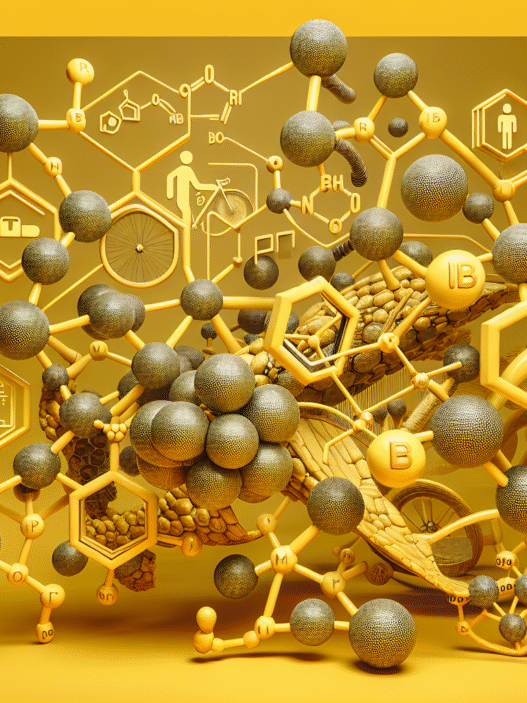Berberine for Anti-Aging
Understanding Berberine’s Benefits
Berberine is a powerful bioactive compound derived primarily from the rhizoma coptidis, a traditional Chinese medicinal plant. Its potential benefits extend to various aspects of health, particularly in the realm of anti-aging. Studies have indicated that berberine may assist in life span extension and mitigate the effects of premature cellular senescence.
The compound’s multifaceted effects include anti-inflammatory properties, antioxidant activity, and the ability to support cellular health. Berberine has been shown to prevent skin inflammation and degradation of extracellular matrix proteins, enhancing skin vitality. It reduces UV-induced damage and promotes the synthesis of collagen, crucial for maintaining youthful skin (NCBI).
In addition to its aesthetic benefits, berberine’s role in regulating various pathways related to aging contributes to a broader spectrum of health advantages. This compound targets multiple key signaling pathways associated with metabolic health, longevity, and cellular integrity.
Mechanisms of Action for Anti-Aging
The anti-aging effects of berberine stem from its ability to activate various signaling pathways that promote longevity and cellular health. Berberine acts as an AMPK (AMP-activated protein kinase) activator, influencing key processes and pathways involved in aging:
| Mechanism | Description |
|---|---|
| mTOR Signaling | Suppression of mTOR signaling helps regulate cell growth and metabolism, ultimately contributing to longevity. |
| SIRT1/FOXO Pathway | Enhances SIRT1 expression, which plays a significant role in maintaining cellular health and regulating lifespan. |
| Nrf2 Pathway | Regulates antioxidant responses, helping to combat oxidative stress and preserve cellular function. |
| NAD+ Levels | Increases intracellular NAD+ concentrations, which is important for various metabolic processes and cellular repair mechanisms. |
| NF-κB Pathway | Inhibits NF-κB activation, thereby reducing inflammation that can contribute to aging and related diseases. |
Additionally, through its antioxidant properties, berberine decreases levels of reactive oxygen species (ROS) and mitigates DNA damage indicative of cellular aging. It lowers intracellular ROS levels and enhances the mitochondrial transmembrane potential, ensuring healthy cellular function (NCBI).
The combined effects of these mechanisms position berberine as a compelling candidate for promoting not only skin health but also overall vitality and longevity. Those interested in exploring more about berberine’s impact on health may consider looking into its various benefits outlined in our article on berberine benefits and its applications for anti-aging effects.
Health Benefits of Berberine
Berberine is gaining attention for its potential benefits in various health areas, particularly concerning anti-aging. This section will delve into three key health benefits of berberine: blood sugar regulation, weight management, and cholesterol and heart health.
Blood Sugar Regulation
One of the most well-documented benefits of berberine is its ability to help regulate blood sugar levels. Research has shown that berberine can significantly lower fasting blood sugar levels by approximately 20% and HbA1c by 12% in individuals with type 2 diabetes (Healthline). This regulation of blood sugar is vital not only for managing diabetes but also for overall metabolic health, which is crucial for maintaining youthful skin and vitality.
Weight Management
Berberine may also play a role in weight management. In a 12-week study, participants taking 500mg of berberine three times per day experienced an average weight loss of 5 pounds and a 3.6% reduction in body fat. Additionally, this supplementation led to notable reductions in body weight, BMI, and belly fat (Healthline). This weight management capability is significant for maintaining a healthy body and enhancing metabolic functions associated with aging.
| Health Benefit | Result |
|---|---|
| Average Weight Loss | 5 pounds |
| Body Fat Reduction | 3.6% |
| BMI Reduction | Notable |
Cholesterol and Heart Health
Berberine’s influence on cholesterol levels is another key aspect of its health benefits. It has been found to lower apolipoprotein B by 13% to 15%, which is beneficial in reducing the risk of heart disease. Additionally, berberine may lower LDL cholesterol levels by inhibiting the enzyme PCSK9, which facilitates the removal of LDL cholesterol from the bloodstream. This effect on cholesterol levels enhances cardiovascular health and supports overall wellness as one ages.
| Health Marker | Change (%) |
|---|---|
| Apolipoprotein B | -13–15% |
| LDL Cholesterol | Decreased |
The health benefits of berberine extend beyond anti-aging, influencing vital areas like blood sugar, weight management, and heart health. For those interested in the potential anti-aging effects of berberine, more information can be found in our articles on berberine anti-aging effects and berberine and longevity.
Berberine Dosage Recommendations
When considering berberine as a supplement for its anti-aging effects, understanding the appropriate dosage is essential. This section outlines common dosages, potential side effects, and interactions with medications.
Common Dosages
For individuals seeking the potential benefits of berberine, common dosages typically range from 900 mg to 2,000 mg per day, divided into multiple doses. A frequently cited regimen involves taking 500 mg of berberine three times a day, which has demonstrated effectiveness in various studies, including one that reported an average weight loss of about 5 pounds and a 3.6% decrease in body fat over 12 weeks (Healthline).
| Dosage (mg) | Frequency | Purpose |
|---|---|---|
| 500 | Three times a day | Weight management and potential anti-aging benefits |
| 900 – 2,000 | Divided throughout the day | General health improvements |
Side Effects and Considerations
While berberine is generally well-tolerated, some individuals may experience side effects. Common reactions can include gastrointestinal issues like diarrhea, constipation, or stomach upset. It is advisable for users to start with a lower dosage and gradually increase it to minimize these effects.
Consideration should also be given to the potential for berberine to lower blood pressure. Monitoring is essential, especially for those who already experience low blood pressure or are on blood pressure-lowering medications (WebMD).
Interaction with Medications
Berberine can interact with various medications, impacting their effectiveness and side effects. Notably:
- Blood Pressure Medications: Combining berberine with these medications could potentially lower blood pressure too much, necessitating close monitoring.
- Cyclosporine: Berberine may affect the metabolism of cyclosporine, increasing its effects and side effects (WebMD).
- Dextromethorphan: Berberine might slow down the breakdown of this medication, potentially enhancing its side effects (WebMD).
It’s crucial for individuals to consult with a healthcare provider before beginning berberine supplementation, especially if they are already taking medications that may interact or affect overall health. For more information about the benefits of berberine and its role in conditions such as diabetes, cardiovascular health, and anti-aging processes, further reading is recommended.
Potential Applications in Disease Management
Berberine has gained attention for its potential applications in managing various diseases, particularly diabetes, cardiovascular health, and obesity. Research continues to explore its efficacy and mechanisms in these areas.
Diabetes Treatment
Research suggests that berberine may be effective as a treatment option for diabetes. A 2019 literature review indicated that berberine was superior to a placebo in lowering blood sugar levels. Moreover, combining berberine with existing blood-sugar-lowering medications showed even more promising results than the medications alone. A subsequent 2021 systematic review provided strong evidence supporting berberine’s use as a supportive therapy for managing type 2 diabetes, improving insulin resistance and blood lipids. However, further research is necessary to fully understand berberine’s therapeutic potential for individuals with diabetes. Details regarding berberine’s impact on blood sugar and diabetes can be found in related articles about berberine and blood pressure and berberine for age-related conditions.
| Study Findings | Impact |
|---|---|
| Berberine better than placebo at lowering blood sugar | Yes |
| Combined use with blood-sugar medications more effective | Yes |
Cardiovascular Health
Berberine may also benefit cardiovascular health. A systematic review from 2021 indicated its ability to lower total and LDL cholesterol levels while potentially increasing HDL (“good”) cholesterol levels. In a study involving 84 participants, those treated with berberine exhibited significant reductions in total and LDL cholesterol compared to those receiving a placebo, though HDL cholesterol showed only slight reductions. While the findings are promising, additional research is critical to assess berberine’s efficacy in managing high cholesterol levels comprehensively. More on berberine’s cholesterol benefits can be explored in articles discussing berberine benefits and its impact on berberine and kidney function.
| Cholesterol Measurement | Effect of Berberine | Placebo Comparison |
|---|---|---|
| Total Cholesterol | Reduced | Less effective |
| LDL Cholesterol | Reduced | Less effective |
| HDL Cholesterol | Slightly increased | Stable |
Anti-Obesity Effects
Berberine may also have an impact on obesity management. A 2021 review highlighted its potential anti-obesity effects, contributing to reductions in weight markers. Additionally, a study in 2020 indicated that berberine supplementation might function as an appetite suppressant, leading to reduced food intake in mouse and rat models. As with other applications, further research is necessary to grasp the complete effects of berberine on weight management. For insights into berberine’s role in weight loss and metabolism, refer to articles about berberine and fat loss and berberine and digestion.
| Observation | Result |
|---|---|
| Weight marker reductions | Yes |
| Appetite suppression observed | Yes |
The ongoing studies and accumulating evidence suggest that berberine could become an essential component in managing chronic conditions such as diabetes, heart disease, and obesity. However, the necessity for further research remains paramount in establishing its efficacy and safety for widespread application.
Recent Studies on Berberine
New research continues to illuminate the various therapeutic applications of berberine, particularly in the fields of PCOS management, pharmacokinetics, and vascular disease protection.
PCOS Management
Polycystic ovary syndrome (PCOS) is a prevalent hormonal disorder affecting women. A 2022 study compared the effects of berberine with metformin and myoinositol in individuals with PCOS. The findings revealed that berberine led to more significant reductions in clinical, hormonal, and lipid parameters than the other medications. Moreover, the study suggested that berberine may be more effective than metformin in decreasing the risk of cardiovascular disease in women with PCOS (Medical News Today). These remarkable results position berberine as a valuable supplement for managing PCOS.
Pharmacokinetics of Berberine
Berberine is known for its poor oral absorption and low bioavailability, which poses challenges for its therapeutic effectiveness. Research indicates that the absolute bioavailability of berberine can range from approximately 0.37% to 0.68%. Maximum plasma concentrations vary significantly depending on the dosage, ranging from 0.07 nM to 9.48 ng/ml. Berberine is primarily absorbed in the small intestine and interacts with the drug transporter P-glycoprotein, contributing to its low absorption in intestinal epithelial cells (PMC).
To better understand how berberine functions in the body, the distribution and metabolism of the compound have also been studied. Berberine is swiftly distributed across various tissues, including the liver, kidneys, muscles, and lungs, achieving higher concentrations in these tissues compared to plasma. Notably, concentrations are typically highest about 4 hours post-administration in animal studies. Furthermore, metabolic processes in the liver involve phase I and phase II pathways, generating metabolites that are predominantly found in plasma (PMC).
Vascular Disease Protection
The potential of berberine to promote cardiovascular health is increasingly recognized. Studies suggest that berberine may play a role in protecting vascular function and mitigating various risk factors associated with cardiovascular diseases. This protective effect may be attributed to its ability to modulate lipid profiles and improve endothelial function, making it a compound of interest in the prevention and management of vascular conditions.
In summary, recent research underscores the multifaceted benefits of berberine. From effective management of PCOS to exploring its pharmacokinetics and potential in vascular disease protection, ongoing studies continue to reveal its promise as a therapeutic agent in promoting overall health. For more insights into the health benefits of berberine and its applications, check out our article on berberine benefits.
Future Research Directions
As interest in berberine continues to grow, several emerging areas of research are being explored regarding its anti-aging properties and overall health benefits. This section will highlight key areas of study that warrant further investigation.
Emerging Areas of Study
Current research findings indicate that berberine’s involvement in activating AMP-activated protein kinase (AMPK) may enhance metabolic effects, particularly in diabetic and insulin-resistant states (WebMD). Future studies could further elucidate the implications of such activation for age-related metabolic disorders.
Recent literature suggests that berberine’s anti-aging effects target multiple signaling pathways, including mTOR signaling, SIRT1/FOXO pathway, Nrf2 pathway, and NF-κB pathway (NCBI). Investigating these interactions in more detail could shine light on berberine’s potential role in systemic aging processes.
| Pathway | Function |
|---|---|
| mTOR | Regulates cell growth and metabolism |
| SIRT1/FOXO | Involved in longevity and stress resistance |
| Nrf2 | Protects against oxidative stress |
| NF-κB | Modulates inflammatory responses |
Berberine’s Role in Longevity
Research suggests that berberine may extend lifespan in organisms such as the fruit fly, Drosophila melanogaster, by modulating cellular signaling pathways associated with aging (NCBI). Furthermore, studies have shown that berberine can significantly lower markers indicative of cellular senescence, empowering the body to combat age-related conditions.
As research expands, understanding the molecular mechanisms through which berberine influences longevity could pave the way for its application in longevity medicine. This could also include studies on how berberine impacts telomere length, which is a critical factor in cellular aging.
Unanswered Questions in Anti-Aging Research
Despite the promising findings related to berberine’s anti-aging properties, numerous questions remain unanswered. For example, more research is needed to fully understand how berberine can inhibit aging-related cellular damage, including its precise mechanisms in preventing skin inflammation and degradation of extracellular matrix proteins (NCBI).
Additionally, further studies could explore the interactions between berberine and other supplements or pharmaceuticals, and how these combinations might optimize its effectiveness for anti-aging purposes.
Overall, advancing the understanding of berberine’s potential in the realms of longevity and anti-aging could lead to innovative strategies in functional medicine and holistic wellness. For more information on berberine’s overall benefits, check out our article on berberine benefits.





















